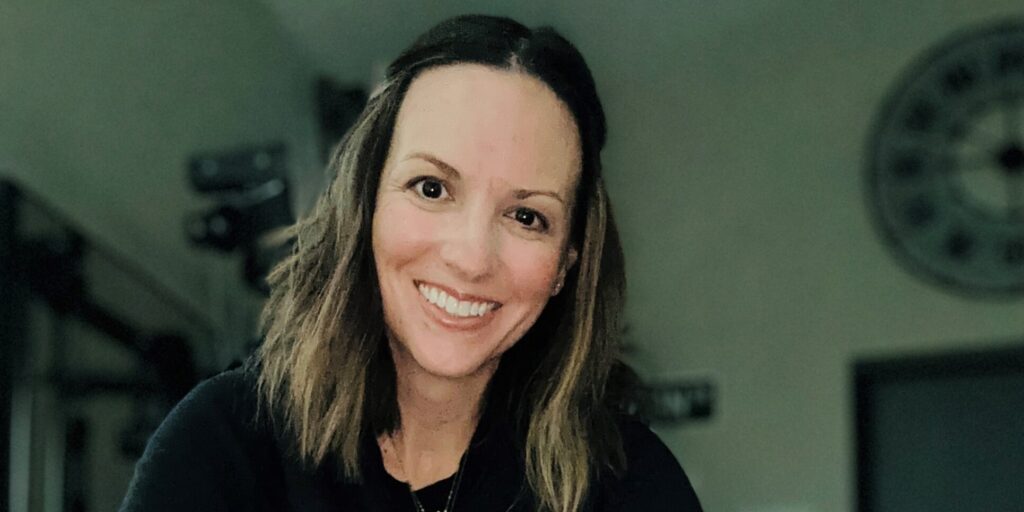
MDA Ambassador Guest Blog: Taking Care of Our Mental Health
By Amy Shinneman | Monday, May 22, 2023
5 Second Summary
MDA Ambassadors play an essential role in furthering MDA’s mission while representing and empowering the neuromuscular disease community. Quest Ambassador Guest Blog series provides a platform to share their personal stories, perspectives, and experience.
I feel like our mental health is something we don’t discuss enough. I want to share how Muscular Dystrophy has affected my mental health, because honestly speaking, there have been some very low times. Living with a physical disability is difficult. Knowing it is something that you can’t take medicine for to make it better like you would a headache or body ache is frustrating. It NEVER GOES AWAY. It is there from the time you open your eyes in the morning, to the time you close your eyes to go sleep at night. Obviously, it’s physically grueling, but you may not realize how much a physical disability can affect your mental health.

For me, growing up, I can now look back and see how much I internalized when dealing with my disability. I wasn’t sure what I was even dealing with since I wasn’t officially diagnosed until the age of 44. I was symptomatic, but I was in a nearly lifelong search for the name of my disease. As a little girl, internalizing all those feelings that come along with being different from everyone else certainly took a toll. It manifested in different ways. Depression, the need for control, anxiety, low self-esteem, and body image issues were all things that I dealt with through the years, and at times I still do. As I mentioned, those things led to some very dark times before I realized there were ways to manage my mental health and the mental effects of being disabled.
We put a lot of emphasis on our physical health, which of course is so important and cannot be ignored. I think we need to give that same attention to our mental health, as poor mental health certainly affects us physically.
Connecting with others who understand is just one way that I take care of my mental health. Finding those things that nurture your mental health are so important. Be mindful of what makes you feel good and take time to take care of you. Some ways that I like to do that are exercising, listening to a favorite playlist, painting, journaling, being in nature and connecting to my spirituality. Reading a good book or watching a favorite movie can also be a great mental escape when you need one. I like to think of these things as a soothing balm for my mind.
While volunteering at an MDA summer camp when I was 19, I got a glimpse of how impactful it is being around others who understand our struggles firsthand. It can be so healing and helpful to our mental health to connect in that way. I think that was the first time in my life that I felt seen and heard on that level. It was amazing to experience that, and to also be that support for others.
Finding a good therapist can also be very beneficial and a great tool to taking care of our mental health. I have just started to dive into researching the effects that living with a lifelong disability can have on a person. I think it will help me to understand myself and my mental health better and help to improve my mental health. Just like our bodies need regular care and checkups, our mental health does too.
I have learned that getting outside of myself and helping others does wonders for my mental health. I am drawn to helping others in a way that I once needed in my life. When we can focus our efforts on making a difference in the life of others, that can really boost our mental health. This past week, I had the opportunity to travel to Washington, D.C., and link arms with other MDA Advocates to use our voices for change. The evening before we had our big day on Capitol Hill, we had a chance to gather and have dinner. Coming together and being able to sit around and talk about our struggles, and how we are working to help change things, was simply life changing. It’s empowering to know you aren’t alone. It promotes confidence where it may be lacking.
Regular maintenance of our mental health should be of utmost importance, as well as talking openly about mental health. It is something that we all face as humans and must attend to as a part of our overall health. Find something you love to do that makes you happy and make that a regular part of your routine. You will notice big changes in your mind and your body. YOU are worth it!
Next Steps and Useful Resources
- Browse MDA’s Mental Health Hub.
- MDA’s Resource Center provides support, guidance, and resources for patients and families. Contact the MDA Resource Center at 1-833-ASK-MDA1 or ResourceCenter@mdausa.org
- Stay up-to-date on Quest content! Subscribe to Quest Magazine and Newsletter.
TAGS: Ambassador Guest Blog, Ambassadors, Amy, Community, Healthcare, Mental Health
TYPE: Blog Post
Disclaimer: No content on this site should ever be used as a substitute for direct medical advice from your doctor or other qualified clinician.




